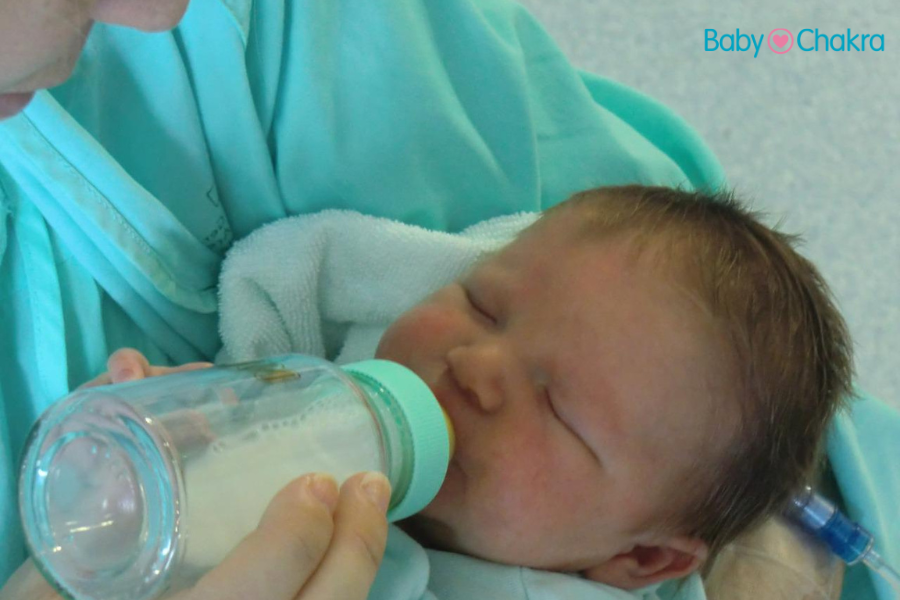
6 Tips For Healthy And Safe Breast Milk For Your Baby
8 Aug 2022 | 5 min Read
Sayani Basu
Author | 607 Articles
According to the data from the Centres for Disease Control and Prevention, approximately 75% of new mothers breastfeed their babies initially. However, they stop breastfeeding the little ones due to the worry about insufficient milk production or they face some of the common challenges of breastfeeding.
Since breast milk is the only source of nutrition for babies in the initial years of life, it is essential to keep a check and ensure you provide healthy and safe breast milk for your baby. Read on to know more.
6 Tips For Healthy And Safe Breast Milk
- Evaluate Your baby’s latch: When your baby is latched on properly and is draining the milk from your breast, it stimulates your body to produce more milk. Plus, without a proper latch, the little one cannot remove the milk from your breast well.
- Eat a healthy diet: It is advisable to include plenty of fruits and vegetables in your diet to increase the milk supply. Fruits like bananas, pears, pomegranate, mangoes, apricots, muskmelon, oranges and grapefruit are rich sources of potassium, vitamins and other essential nutrients.
According to the USDA, vegetables like spinach, carrots, beetroots, pumpkins, tomatoes and red peppers are highly recommended to breastfeeding mums as these are rich in antioxidants.
Celebrity nutritionist, and founder of DietQueen App, Dr Kiran Rukadikar says, “Lactating mums should include flax and chia seeds in their diet as these are good sources of omega-3. For optimal milk production, the diet should also include sufficient amounts of high-quality protein (milk, cheese, paneer, curds, poultry, eggs, cereal pulse combinations, and nuts). The supply of milk volume decreases if the diet is low in protein and energy.“
“The calcium requirement should not be overlooked too. Lactating mums should consume at least 500 ml of milk or milk products per day, with the remaining needs being satisfied by other dietary items such as ragi, Bengal gramme (whole), soybean, amaranth, fenugreek leaves, radish leaves, sesame seeds, tamarind and fish,” he adds.
- Drink plenty of water: Drink plenty of water as your body can’t make milk if you’re dehydrated. Therefore, you need more water than you probably think. You can also consult a lactation consultant who will guide you on this.
Dr Kiran Rukadikar suggests, “Lactating mums should consume eight glasses of water every day during breastfeeding. They should also drink a glass of water after each nursing session. Other healthy drinks besides water include juice, milk, broths, herbal teas, and soups.”
- Keep stress at bay: It is important to keep stress at bay for lactating mums as it might affect milk production. Try to have adequate rest and proper sleep at night. You can also take power naps during the day if possible.
- Breastfeed your baby often: It is advisable to breastfeed your baby or pump the breast milk from your breasts at least eight to 16 times a day. If it has been a while since the little one was at the breast, it might take a lot of persistence and consistency for the baby to find a way back to breastfeeding.
You can also use a double electric breast pump to increase the milk production as pumping after nursing indicates and signals your body to produce more milk.
- Avoid alcohol, caffeine and seafood: Medical research suggests that no level of alcohol in breast milk is considered safe for a baby. Therefore, it is advisable that before you drink alcohol, try to consider pumping milk to feed your baby later.
The caffeine content in your breast milk might agitate your little one or interfere with your baby’s sleep. Therefore, it is recommended to avoid drinking more than two to three cups (16 to 24 ounces) of caffeinated drinks a day while breastfeeding.
Most seafood like swordfish, king mackerel and tilefish contain mercury and other contaminants and its exposure through breast milk can pose a risk to a baby’s developing nervous system.
5 Tips To Store Breast Milk To Keep It Healthy And Safe
- It is advisable to store breast milk in small batches (two to four ounces) to prevent waste. Plus, any remaining breast milk that is left in a bottle after your baby has finished a feeding should be used within two hours. However, if it is quickly refrigerated, it can also be used for the next day.
- You should refrigerate or chill the breast milk right after it is expressed. According to medical studies, freshly expressed milk can remain at room temperature (up to 77 degrees Fahrenheit or 25 degrees Celsius) for four hours.
- To warm the breast milk from the refrigerator, all you need to do is place the bottle in a bowl of warm water or you can run it under the warm water. Microwaving breast milk is not advisable as it carries the risk of scalding your baby with hot milk.
- Once the breast milk is thawed, it can be stored in a refrigerator and should be fed to your baby within 24 hours.
- You should freeze the breast milk if it is not to be used within 24 hours.
There can be certain foods or drinks in your diet that can cause your baby to become irritable or have an allergic reaction. If your baby becomes fussy or develops a rash, diarrhoea or wheezing soon after feeding, it is advisable to consult a doctor right away.
A


Suggestions offered by doctors on BabyChakra are of advisory nature i.e., for educational and informational purposes only. Content posted on, created for, or compiled by BabyChakra is not intended or designed to replace your doctor's independent judgment about any symptom, condition, or the appropriateness or risks of a procedure or treatment for a given person.
